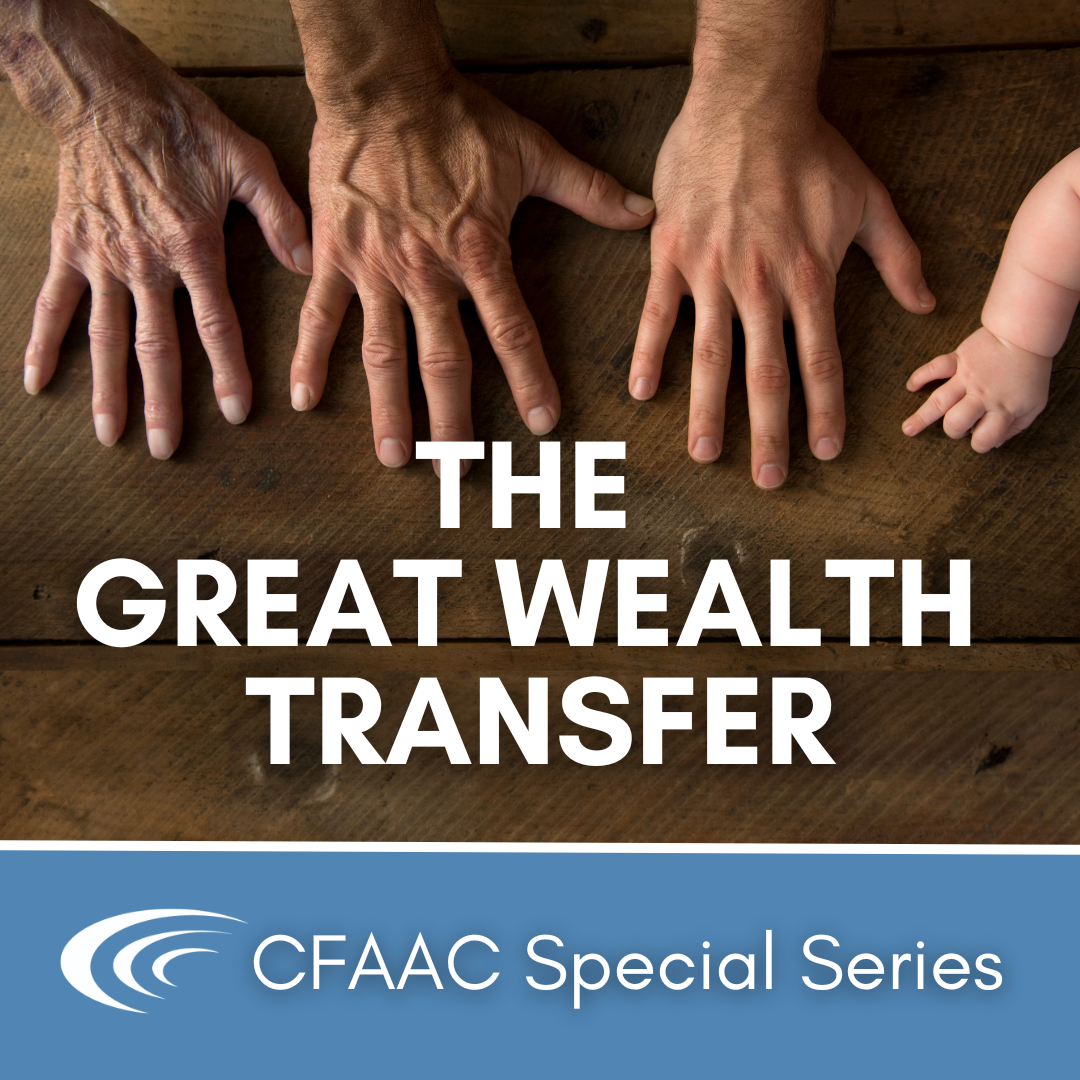

The Great Wealth Transfer presents opportunities and challenges for families and their professional advisor partners. The question is: is everyone prepared?
First, the opportunities: if you are inheriting significant wealth, you have the opportunity to work with professional advisors to devise an optimal strategy to manage your wealth, including giving to the causes you want to support. Don’t wait to talk to an advisor about initiating or strengthening your estate plans including your wills, power of attorney, healthcare directives, and philanthropic strategies. It’s never too early to start. Professional advisors also have an opportunity to engage and develop a relationship with heirs in a meaningful way, which can be exciting and rewarding.
When thinking about these relationships, advisors should know that it is estimated that 70% to 90% of children who inherit substantial wealth will fire their parents’ financial advisor. Another startling statistic is that women, who will stand to inherit a significant amount, are also 80% likely to leave their advisors once their spouse has passed. These are the challenges, but they don’t have to be.
While there are many reasons why people move on, the most frequent one is that the heirs and advisors have not established a relationship. Knowing that trust is based on understanding, it is important that advisors reach out and discover the needs and interests of the individuals who will be inheriting the wealth of their clients. Heirs often switch advisors to work with someone they already know and trust. While everyone has a part to play in building these relationships, more often than not, it is the advisors who need to reach out to heirs to begin meaningful conversations.
Advisors should also know that heirs may move on simply because they feel misunderstood by the financial advisor. They may feel compelled to work with someone new who can give them guidance about their unique goals, passions, and plans that may not necessarily be the same as their deceased family members’. For example, millennials may want advice on buying a first home or saving for their children’s college. And women tend to appreciate a more holistic approach to wealth management and approach risk differently. According to a McKinsey study, women are almost 10% less likely than men to take big investment risks for potential higher returns. These are realities that savvy advisors need to know in order to develop ongoing relationships.
Advisors who succeed in this Great Wealth opportunity are those who actively cultivate deep connections with the entire family—not just the parents or one spouse. It is also important for the family member who intends to transfer their wealth to help foster these relationships with all family members in anticipation of the eventual transfer of wealth and what that can mean for their family. How? Experts advise meetings between the professional advisors and the entire family early and often with both parties asking clarifying questions to better understand goals and concerns. These meetings also can help younger members grasp fundamental financial principles, comprehend financial documents and the family’s financial status, and can benefit them by being part of the conversations about long-term plans.
Advisors can also offer education programs for certain age groups or women specifically through their offices or by collaborating with external educational organizations tailored to offer their clients programs. For example, advisors might host courses that educate young people on fundamental aspects of personal finance such as savings, debt management, investments, budgeting, as well as selecting and managing charitable contributions. Clients and their heirs should make every effort to attend these programs to garner a better understanding of their finances and their future.
Advisors can continue to strengthen relationships by maintaining communication between meetings and programs, and by forwarding educational content or anything else of interest that may spark conversation and reinforce ideas. Likewise, clients and their heirs should reach out to their advisor if there is something they don’t understand or want to know more about.
Additionally, we encourage families and advisors to include CFAAC at the table when discussing philanthropic interests and community needs. We can facilitate conversations to create or update a plan for donating a portion of cash and noncash assets to causes that matter most to them. Contact CFAAC Director of Gift Planning John Rodenhausen at john@cfaac.org to learn more.
This is the fourth article in a four-part series about the Great Wealth Transfer.